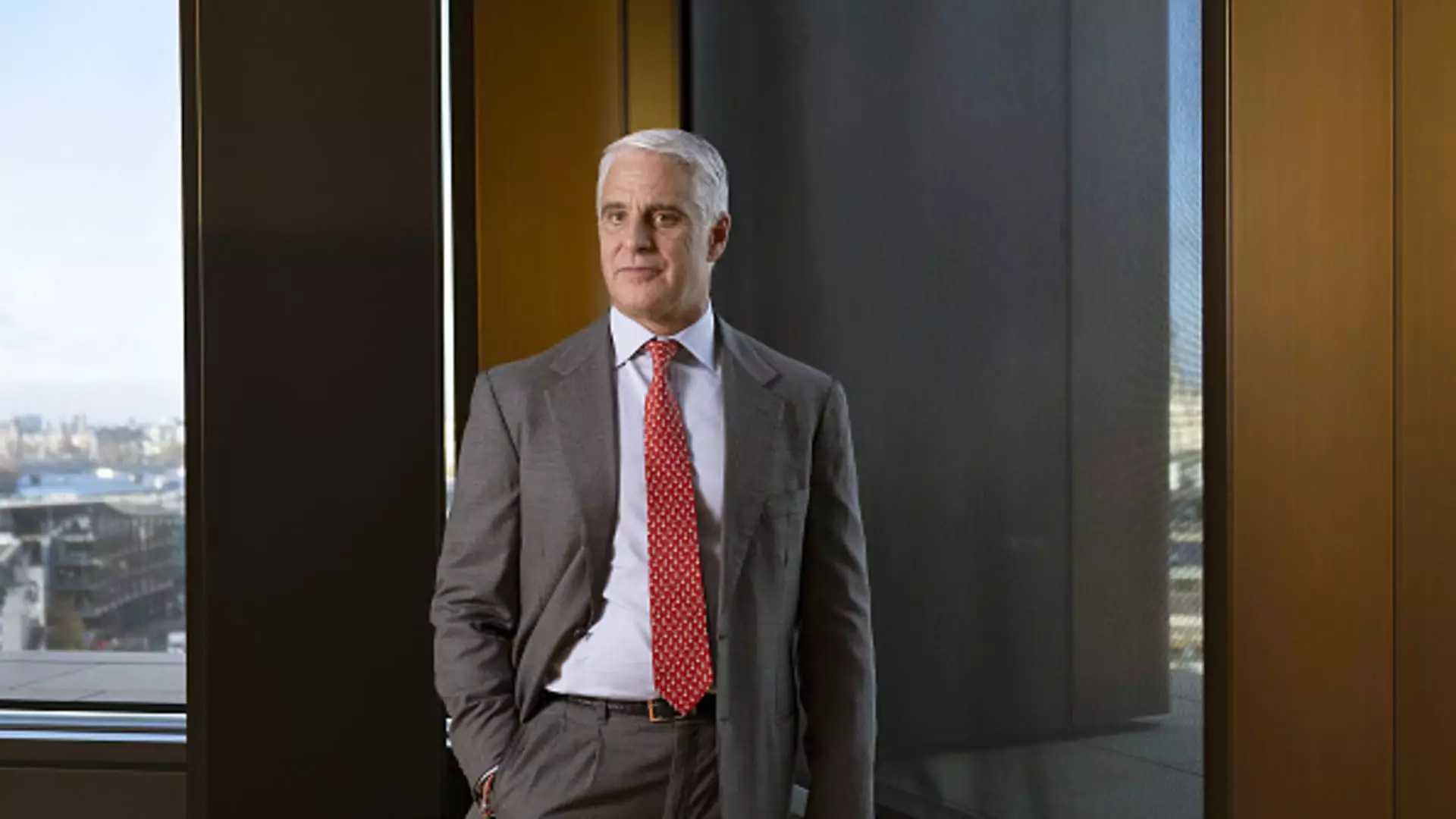In the contemporary European banking sector, strategic maneuvers often echo the broader economic and political climates. Recently, Andrea Orcel, the CEO of UniCredit, has found himself at the center of two significant takeover pursuits: one involving Banco BPM in Italy and the other with Commerzbank in Germany. Each move reflects both Orcel’s ambition for cross-border expansion as well as the turbulence embedded within the political atmospheres of these nations, raising questions about the viability and implications of such consolidation efforts.
Orcel’s journey is not without historical context; his key role in the controversial ABN Amro takeover in 2007 illustrates a pedigree in major banking moves that now seems critical as he attempts to reshape UniCredit’s destiny. His recent announcement regarding a stake acquisition in Commerzbank was unexpected yet telling—it displayed a strategic pivot amid rumors tying Commerzbank to Deutsche Bank for a potential merger. However, resistance from the German government complicates matters, signaling a challenging environment for Orcel’s ambitions across borders.
The Italian financial landscape came into sharper focus with UniCredit’s aimed takeover of Banco BPM, fueled by a proposed offer of 10 billion euros. However, Banco BPM responded dismissively, suggesting the terms were unusual and undervalued their growth potential. This tension highlights the broader implications of Orcel’s dual pursuits, particularly given the Italian administration’s skepticism towards the viability of attempting two simultaneous takeovers, as warned by Economy Minister Giancarlo Giorgetti.
Despite an initial cold reception, analysts argue that Orcel is not without options to enhance his proposal for Banco BPM. Some suggest that a cash component could be pivotal as UniCredit seeks to elevate its standing in an increasingly competitive banking arena. However, the delicate balance between increasing the offer and preserving shareholder value creates a complex financial conundrum for Orcel. The structure of the initial proposal—a predominantly stock-based transaction priced just below the current share threshold—was seen as a strategic misstep, as analysts warn that significantly boosting the offer could dilute earnings for existing shareholders.
UniCredit’s current positioning is shaped by rapid developments within the Italian banking sector, underscored by Banco BPM’s recent moves, including acquiring a stake in Monte dei Paschi. Orcel describes Banco BPM as a “historical target,” signaling renewed interest after past attempts faltered. Yet, the successful pursuit of such a merger is not solely contingent upon financial maneuvering—it also requires navigating the complex interplay of regulatory and political sentiments that could inhibit progress.
Amid a backdrop of easing interest rates and a shift toward consolidation, UniCredit’s strategy requires careful orchestration. Analysts cite a favorable CET1 ratio exceeding 16%, which speaks to the bank’s financial robustness. Still, questions remain about how much its growth strategy will hinge on successful acquisitions amid potential integration challenges. If UniCredit is to weather this storm and potentially emerge stronger from the turmoil, a well-defined and singular approach—be it focusing on Banco BPM or Commerzbank—may be necessary.
While Orcel’s ambitions to integrate Banco BPM and Commerzbank reveal a desire for growth and resilience within challenging market dynamics, they also highlight the precarious balance between aggressive expansion and maintaining financial prudence. Economists warn that the Italian lender’s attempts to juggle both deals could lead to management strain, possibly detracting from UniCredit’s long-term strategic goals.
Moreover, the broader consolidation trend in the Italian banking sector—fueled by Banco BPM’s activities—places additional pressure on UniCredit. Merging with a domestic partner like Banco BPM remains a plausible path to strengthen its position against industry leader Intesa Sanpaolo. Yet, the surrounding uncertainties compel a prudent reevaluation of the approach: could UniCredit sustain its growth trajectory without further acquisitions? As analysts point to the successful operational performance of the bank in recent quarters, this question hangs over Orcel’s next moves.
The future of UniCredit under Orcel’s leadership remains to be seen, especially as he weighs the implications of his strategies regarding Banco BPM and Commerzbank against the reality of robust shareholder expectations. Should Orcel proceed with both ambitions, he must tread carefully, ensuring each step taken adds tangible value and does not compromise UniCredit’s core strengths. Ultimately, the decision to engage in either takeover must balance ambition with realistic outcomes that prioritize stakeholder interests above all. If directed cautiously, UniCredit could either capitalize on these opportunities or choose to forge a path independently, securing its position in a volatile banking landscape.

Leave a Reply